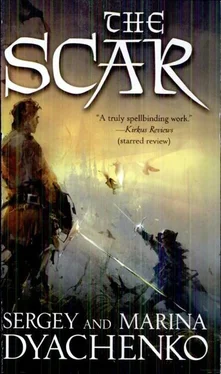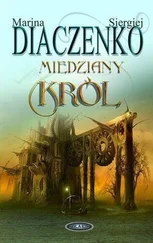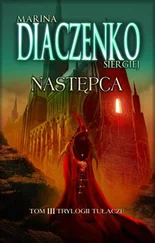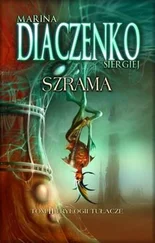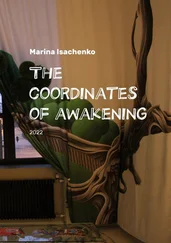He spent a long night full of fear on the square, illuminated by the barely gleaming light of the streetlamp and by the ominous reflections in the windows of the cheerless building. Dawn broke late, and in the pale morning Egert saw acolytes of Lash entering the iron doors.
There were four of them, and all of them looked like Fagirra. The doors closed behind them, and Egert hunkered down by his post, wearied from fear, anxiety, and despair.
The accusation, of course, originated with the acolytes. Fagirra’s words spilled out of Egert’s distant memory, “The city magistrate heeds the advice of the Magister.” Yes, but the Order of Lash is not the court! Perhaps I’ll be able to explain to the magistrate, to open his eyes. It is likely that the Black Plague has also robbed him of those close to him, for the Plague respected neither rank nor office.
A group of guards hurriedly exited the iron doors. Egert thought he recognized the officer who arrested Toria among them. Pitilessly tramping down the slushy snow with their boots, the guards rushed away, and Egert berated himself for his foolish suspicion: that they once again headed for the university.
If only the dean were alive. If only you were alive, Luayan. How can they dare? And now Toria has no one to turn to except for …
He pressed his cheek to the cold, wet lamppost, waiting for the whip of fear at the idea of going up to those iron doors, of passing by that executed manikin, of stepping over that threshold. But then, Toria had already stepped over it.
He spent a long time convincing himself that there was nothing frightening in what he planned to do. He simply had to enter the courthouse, and then he would leave right after he had seen the magistrate. He needed to convince him. The magistrate was not Lash. But Toria was already there, and Egert might get to see her.
This thought decided him. Immediately recalling his protective rituals, interweaving the fingers of one hand and clutching a button in the other, he moved toward the iron doors following an intricate, winding route.
He would never have summoned the courage to seize hold of the door handle, but fortunately or unfortunately the door opened in front of him, producing a scribe with a bland expression. There was nothing else for Egert to do but step forward into the unknown.
The unknown turned out to be a low semicircular room with many doors, empty desks in the middle, and a bored guard by the entryway. The guard did not so much as glance at Egert as he entered, but a flabby young clerk, who was absentmindedly tracing the point of his rusty penknife along the tabletop, nodded inquiringly but without any special interest.
“Shut the door behind you.”
The door swung shut firmly without Egert’s help, like the door of a cage. The chain attached to the dead bolt clanged.
“What’s your business?” the clerk asked. His expression, sleepy and entirely ordinary, comforted Egert slightly. The first person he encountered in this formidable institution seemed no more sinister than a shopkeeper. Gathering up his courage, squeezing his button for all he was worth, Egert forced out, “The daughter of Dean Luayan, of the university, was arrested yesterday. I…” He faltered, not knowing what to say further.
The clerk, in the meantime, had brightened. “Name?”
“Whose?” Egert asked foolishly.
“Yours.” The clerk, evidently, had long ago become accustomed to the obtuseness of petitioners.
“Egert Soll,” said Egert after a pause.
The cloudy eyes of the clerk flashed. “Soll? The auditor?”
Unpleasantly startled by the clerk’s knowledge of him, Egert nodded reluctantly.
The clerk scratched his cheek with the tip of his knife. “I think … yes. Wait just a moment, Soll. I will announce you.” And sliding out from behind his desk, the bureaucrat dived into one of the side corridors.
Instead of being glad, once again Egert became frightened, more intensely than before, so that his knees were shaking. His legs took a step toward the doors. The somnolent guard looked at him, and his hand settled absently onto his pikestaff. Egert froze. A second guard, who unhurriedly walked out of the very corridor down which the clerk had disappeared, examined Egert critically, like a cook examines a carcass that has just been brought back from market.
The clerk, peering out an entirely different door, beckoned to Egert with a crooked finger. “Come with me, Soll.”
So, submissive as a lost boy, Egert followed the clerk toward his fate. He crossed the path of four of the robed men in the corridor. The familiar, harsh odor wafted toward Egert, and it repulsed him so much, he felt he might vomit; not one of the soldiers of Lash lifted his hood, but Egert felt their cold, intent gazes on his back.
* * *
Crooked folds hung over the face of the magistrate, submerging his small eyes, sunken in flesh. Egert glanced into them once and immediately lowered his eyes, examining the smooth floor with marble veins, onto which water flowed from his soaked shoes. The magistrate studied him. Without raising his head, Egert could feel the weighty gaze eating into his skin.
“We expected to see you sooner, Soll.” The strained voice of the magistrate was scarcely audible; it seemed that every word cost him effort. “We expected you. After all, wasn’t it the daughter of Dean Luayan, your wife, who was arrested?”
Egert flinched. The magistrate had to wait quite a long time for his answer.
“Well, we are going to get married. That is, we plan to.” Having whispered this despicable phrase, Egert was pierced by an abhorrence of himself, as if, by informing the magistrate of this simple truth, he had somehow betrayed Toria.
“That’s one and the same,” sighed the magistrate. “Justice is counting on you, Soll. You will appear as the chief witness in court.”
Egert raised his head. “A witness? Of what?”
Brisk voices and the stomping of boots could be heard from beyond the door; then a clerk emerged from behind a curtain and began whispering something quickly into the ear of the magistrate.
“Tell them that the command has been revoked.” The magistrate’s voice soughed like snakeskin on dry stone. “He’s already here.”
Egert’s strained nerves unerringly ascertained that the magistrate was talking about him. He recalled the guards that set out for the university, and he licked parched lips that had lost all sensation.
“You have nothing to be afraid of.” The magistrate smiled, observing him. “You are nothing more than a witness. A valuable witness, inasmuch as you were close to the family of the old necromancer. Isn’t that so?”
Egert felt his ashen cheeks become hot and red. Referring to Dean Luayan as an old necromancer went beyond all bounds of disrespect, but then fear swallowed this spasm of indignation like a bog swallows a stone tossed into the mire.
The magistrate spoke dispassionately. “Just one virtue is required of a witness: to speak the truth. You know how grievously the Plague cost the city. You know that it did not appear on its own.”
Egert’s skin felt stretched.
“The Plague did not appear on its own,” continued the magistrate in his rasping voice. “The old necromancer and his daughter used their magic to summon it from out of the earth, from the gloom where it should have stayed hidden for generations. The Sacred Spirit Lash foretold the End of Time, but his acolytes were able to stop the assault and overwhelm the necromancer with ceaseless prayers and ceremonies. The city has been saved, but there are so many victims, Soll, so many victims. You must agree that the perpetrators of this crime should answer before the law; the families of the slain require it, and justice itself requires it.”
Читать дальше
